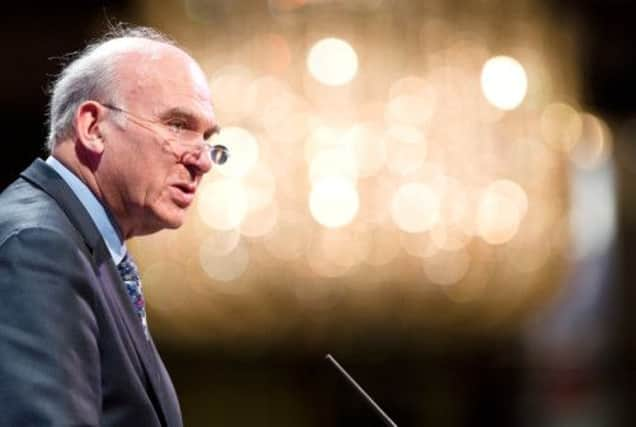Business Bank gets chairman as its lending rises


Ron Emerson, who has spent most of his career in international banking, will take over the leadership of the bank’s board as it switches to public-listed company (PLC) status, once it receives state aid approval from the European Commission.
Emerson has held senior management posts with Bank of America and Standard Chartered Bank, where he was head of corporate banking.
Advertisement
Hide AdAdvertisement
Hide AdCable also named Christina McComb – a former director of venture capital group 3i and now senior independent director at Standard Life European Private Equity Trust – as the business bank’s senior independent director.
Their appointments came as the bank disclosed rising lending figures and launched its new branding.
Cable said: “This is an important milestone in the establishment of the British Business Bank.
“Ron Emerson and Christina McComb bring a powerful combination of business finance and policy experience that will ensure the bank improves the supply of finance to smaller businesses.”
Emerson said the bank – which currently operates in the Department for Business, Innovation & Skills (BIS) ahead of transferring to PLC status in about a year’s time – was “an idea of its time”.
“The UK has long needed a more effective set of financing options for smaller businesses, and the British Business Bank will be a key catalyst in this process,” he said
BIS also revealed yesterday £260 million of extra finance reached smaller businesses in the first half of this year – 58 per cent up on the first half of 2012. It said 8,000 SMEs “benefited from a British Business Bank solution” in the year to 30 June.
Cable said the bank was created to address the on-going impact on credit for businesses of the financial collapse of 2008. In addition, he said, “we have always lacked in the UK a proper institutional arrangement to support finance for SMEs”.
Advertisement
Hide AdAdvertisement
Hide AdHe said the extra £1 billion earmarked in last year’s Autumn Statement would allow the British Business Bank to enter a “new expansion phase”.
The extra money will be used to “leverage” existing SME lending, also helped by consolidating many of the UK government’s existing lending schemes.
There will be no branches on the high street. Smaller businesses will get the extra UK government finance from a range of sources and distribution channels including existing banks, challenger banks, venture capitalists, angel networks, peer-to-peer lending and crowd funding.
In effect, the taxpayer will underwrite loans to smaller businesses that might otherwise have been turned away by the various existing lenders.
Emerson said it was unfortunate that, in terms of SME lending, existing bank lenders had “often been seen as the only game in town. The issue is to make sure it is not the only game in town”.
He added the bank was not solely interested in “growth” SMEs to the exclusion of all others, as it was important to safeguard existing jobs. Whitehall has said the initiative should unlock £10bn of extra finance over the next five years.
COMMENT, PAGE 35